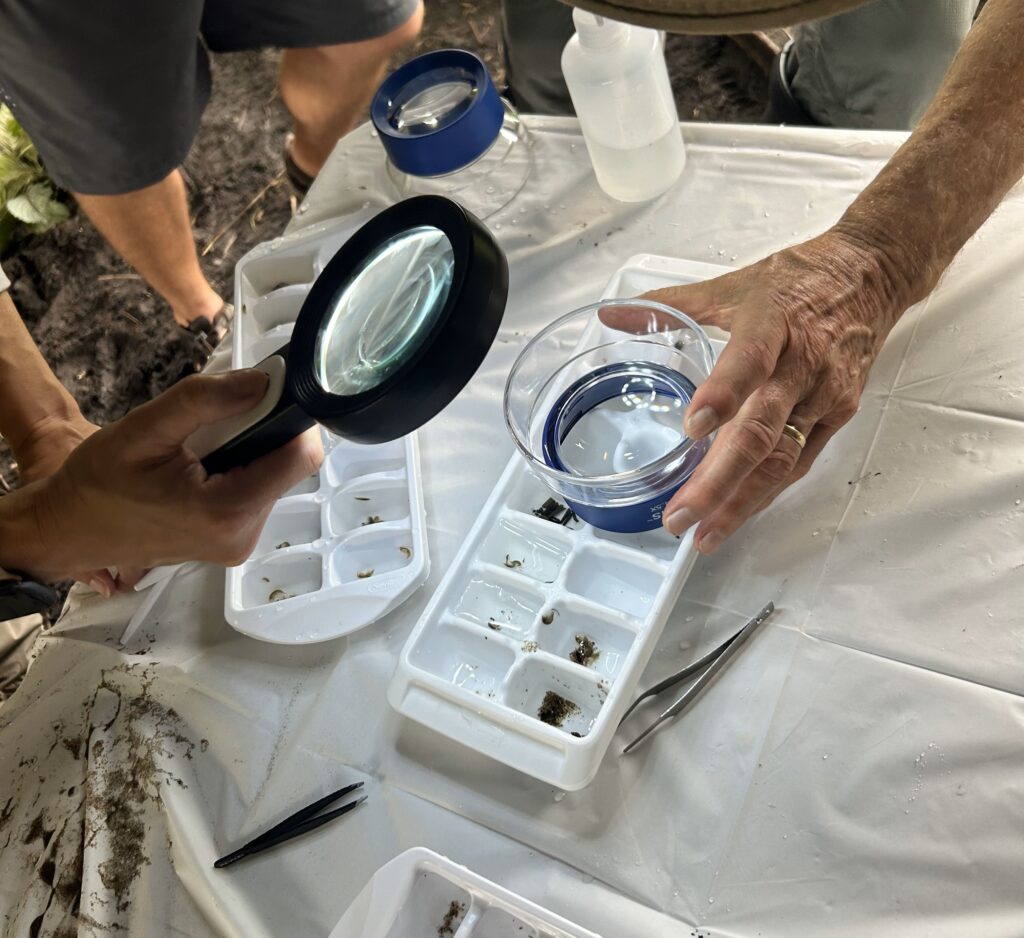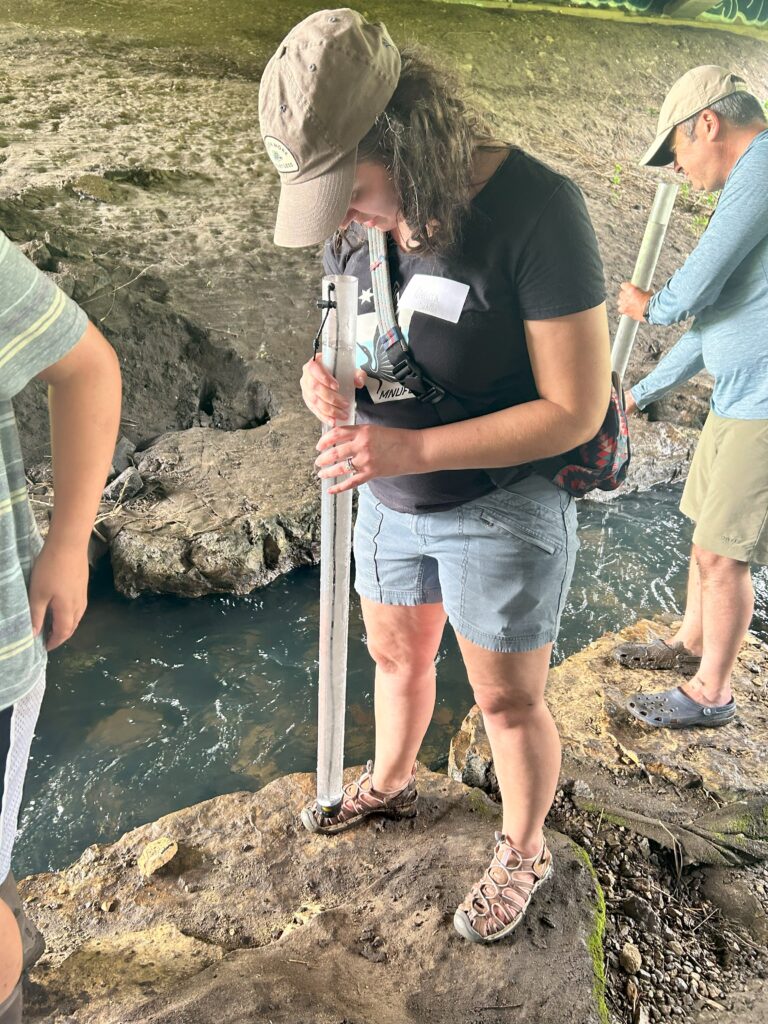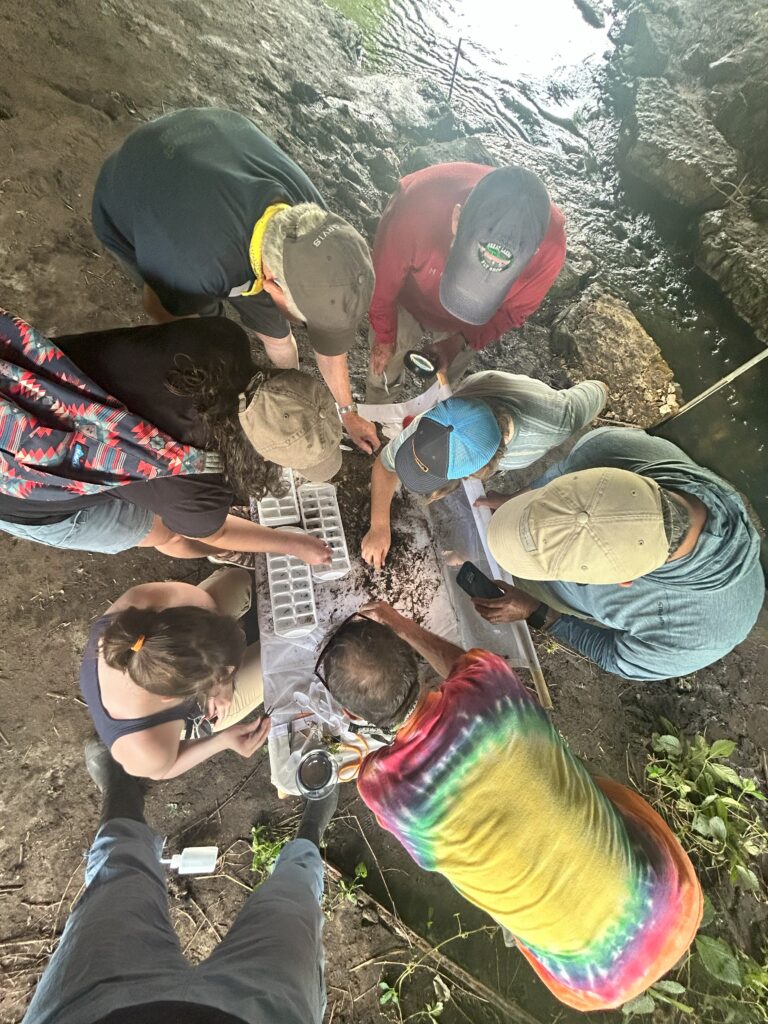Monitoring Macros with the TCTU’s Streamkeepers and Save Our Streams (SOS) Community Science



On August 4,2024 twenty conservation-minded folks gathered on the banks of Eagle Creek in Savage, MN to become certified Save Our Streams (SOS) community scientists – learning the techniques for biological and chemical water testing in streams. The effort was led by the Twin City Trout Unlimited (TCTU) Streamkeepers Program as a way to step up their efforts in water quality monitoring of local streams.
The effort to incorporate the Save Our Streams protocol into the TCTU Streamkeepers program was initiated and organized by member Jim Sauter, who attended an SOS training last year.
Although the TCTU Streamkeepers and other MNTU members already participate in Trout Unlimited’s WiseH20 water quality monitoring program, there was a desire to take the monitoring even further. Wise H20 is limited to chemical testing (phosphorus, nitrates, etc), whereas the SOS program adds in the biological monitoring of aquatic macroinvertebrates to assess stream health. The latter is important – while water chemistry provides a snapshot of water quality, the presence or absence of certain invertebrates tells a deeper story about the health of a stream over a long period of time.
Lastly, and probably most importantly, because there is a certification process for macroinvertebrate identification, standardized protocols for testing, and high-quality chemical testing kits, the data generated by SOS community scientists are considered of a “known quality.” In short, this means that once uploaded, the data is of high enough quality to be included in a federal database of water quality metrics, and must be used to inform decision-making and policy.
What is Save Our Streams?
The Izaak Walton League’s Save Our Streams (SOS) program has been a key player in water quality monitoring since its launch in 1969. The program started at a time when people were really beginning to wake up to environmental issues, and the League saw an opportunity to get everyday folks involved in something important—keeping an eye on the health of our rivers, streams, and lakes.
The idea behind SOS was simple: train volunteers to monitor water quality right in their own communities. By doing this, the program not only gathers essential data but also helps people feel more connected to their local environment. And it’s been a huge success! Over the years, thousands of volunteers have jumped on board, collecting data that scientists, environmental groups, and policymakers use to protect and improve our waterways.
What makes the SOS program really cool is how it supports community science. Volunteers are given easy-to-follow protocols, along with the tools and resources they need to test water quality. They look at things like the types of bugs (macroinvertebrates) living in the water, clarity, and chemical makeup. This data is crucial for spotting pollution, tracking changes over time, and pushing for cleaner water policies.
Interested in learning more?
To learn more about the TCTU Streamkeepers program and their water quality monitoring, reach out to Jim Sauter, jim.sauter@twincitiestu.org, and stay tuned for a potential spring SOS certification.
Also, if you are interested in organizing a SOS certification training for your community or non-profit, reach out to Jennifer Biederman, certified SOS trainer, at jennifer.biederman@mntu.org

